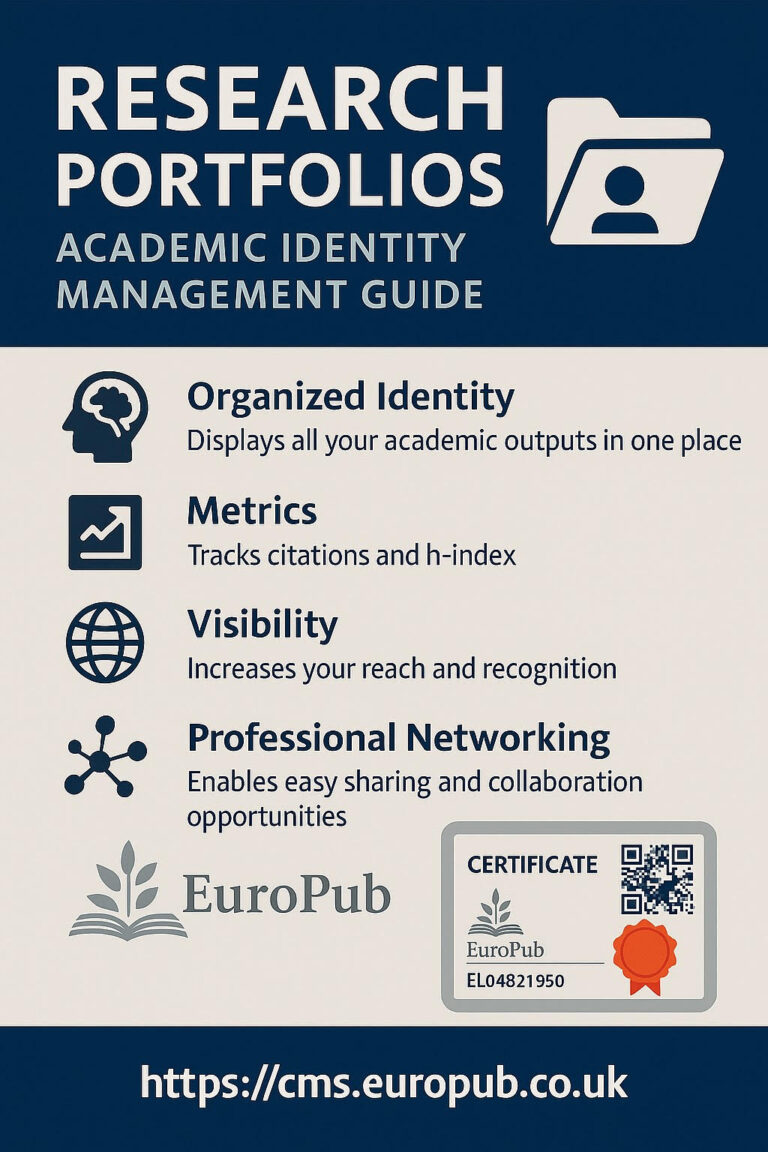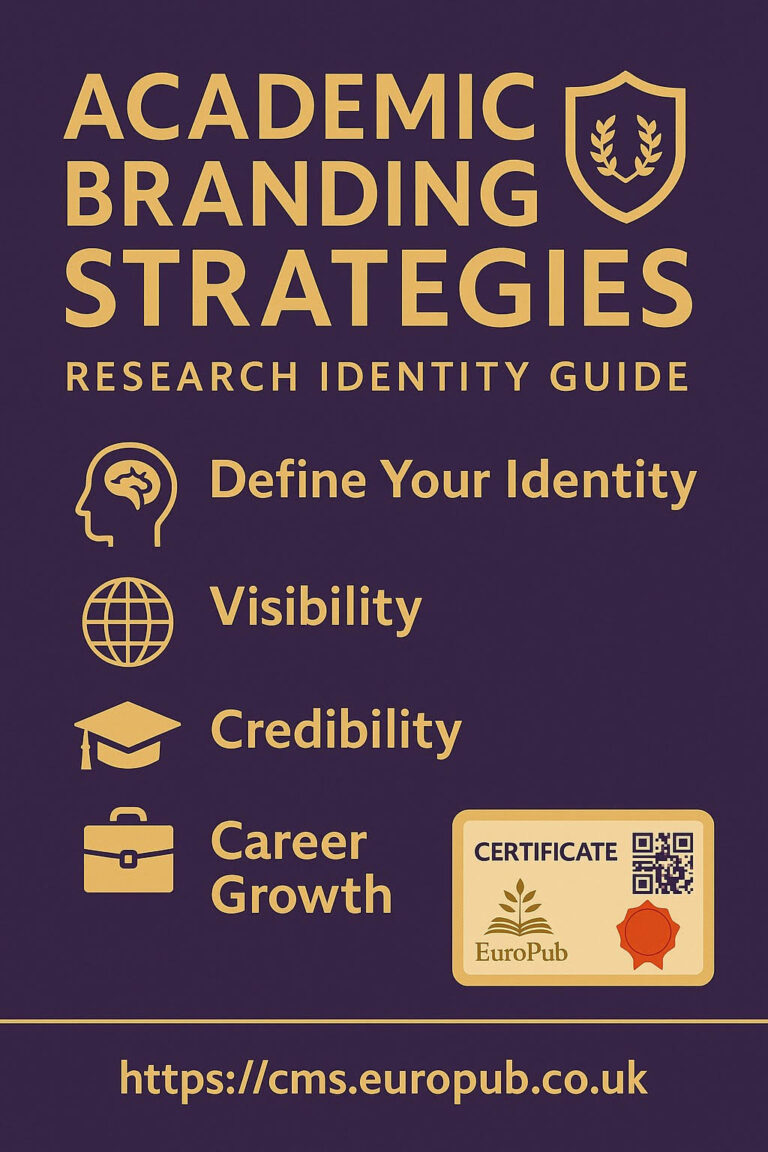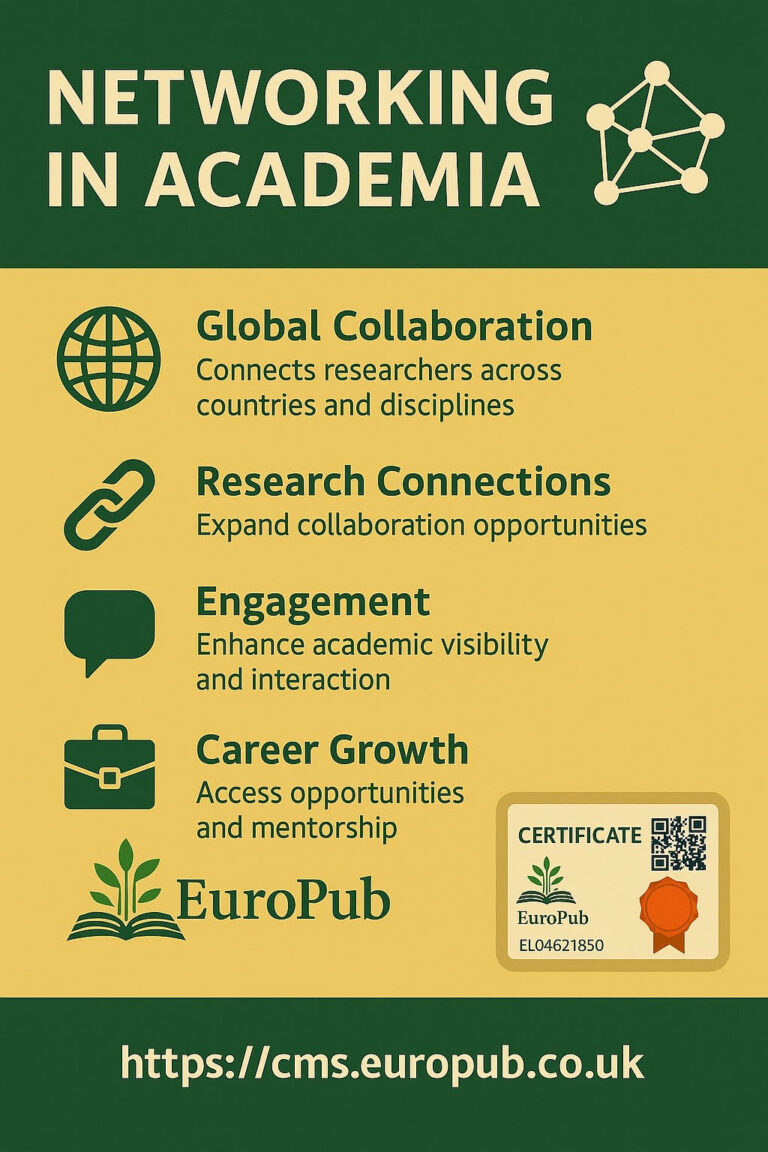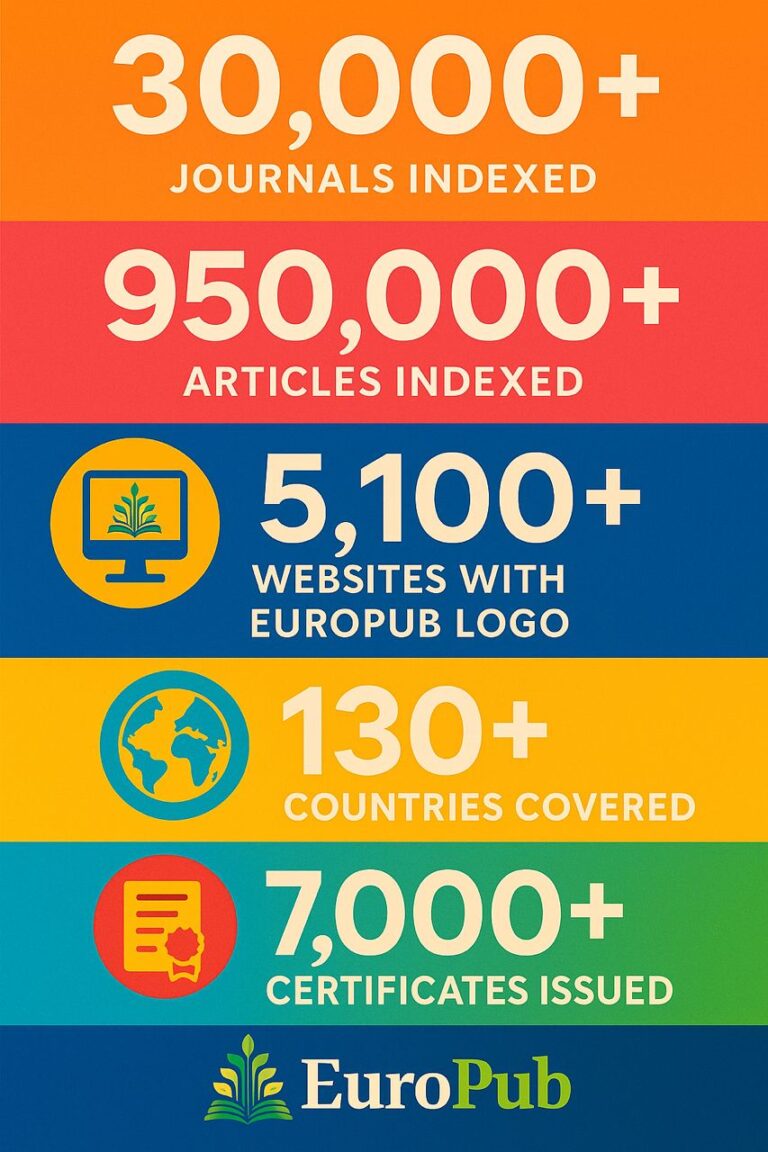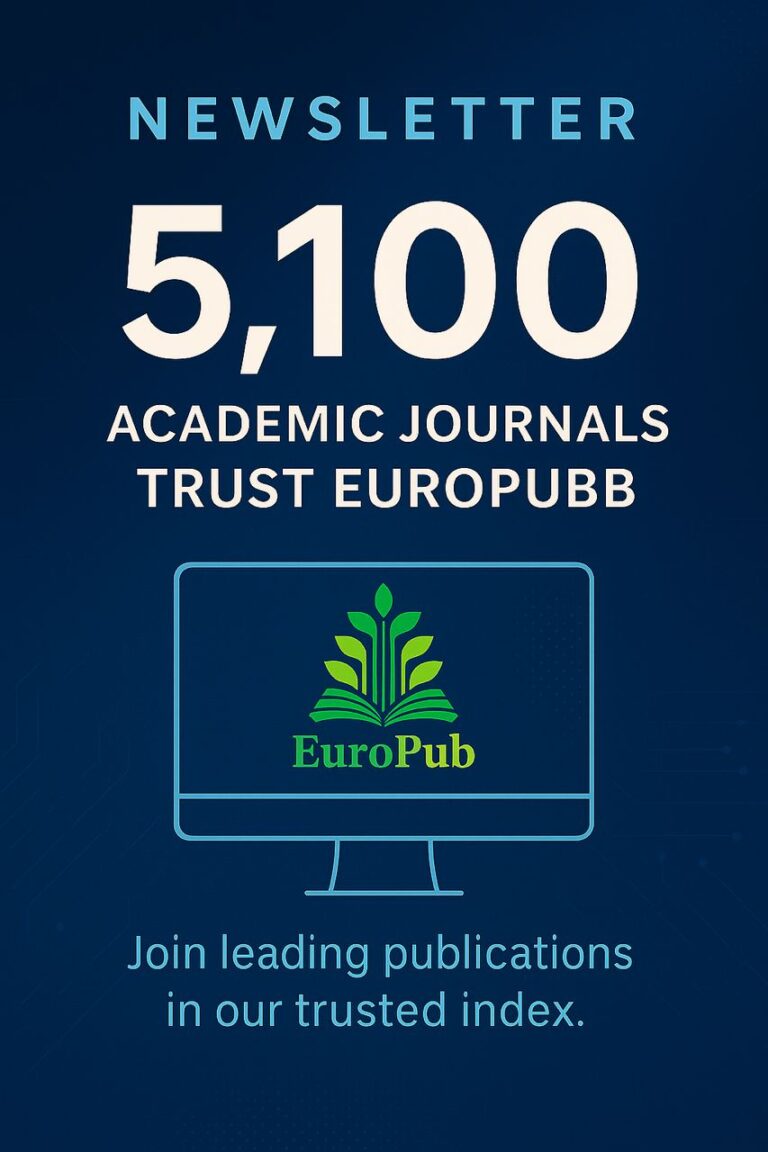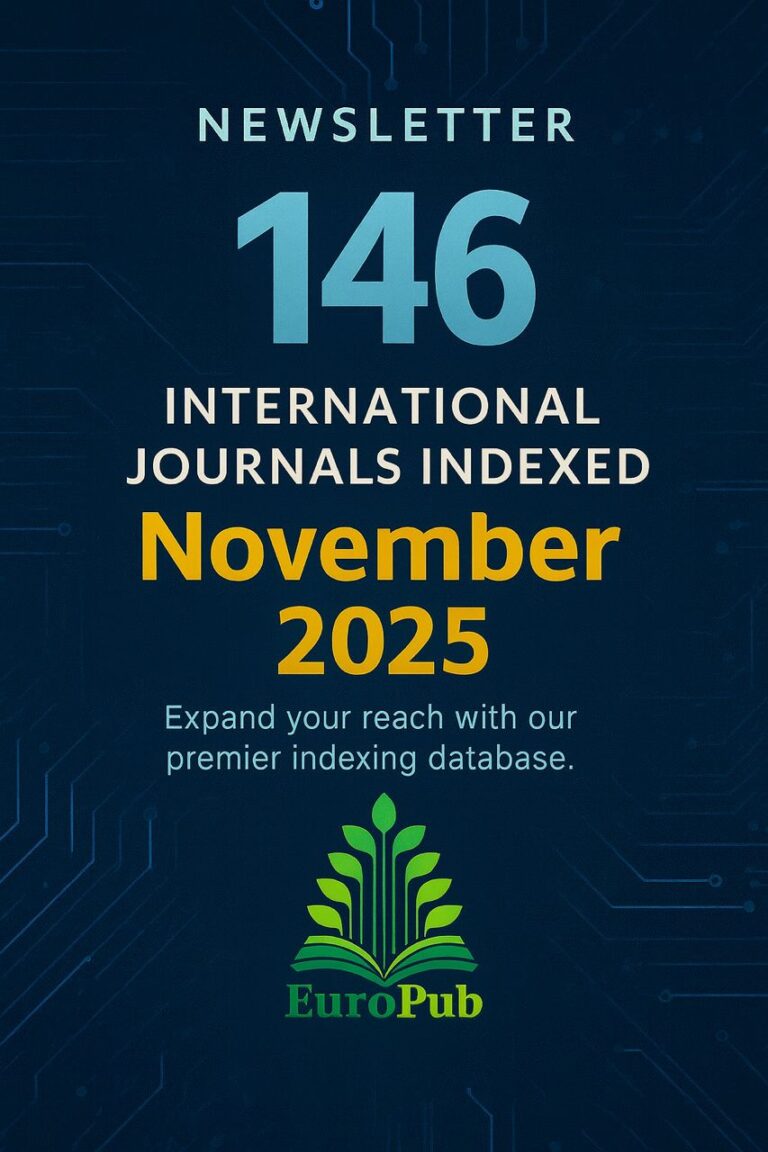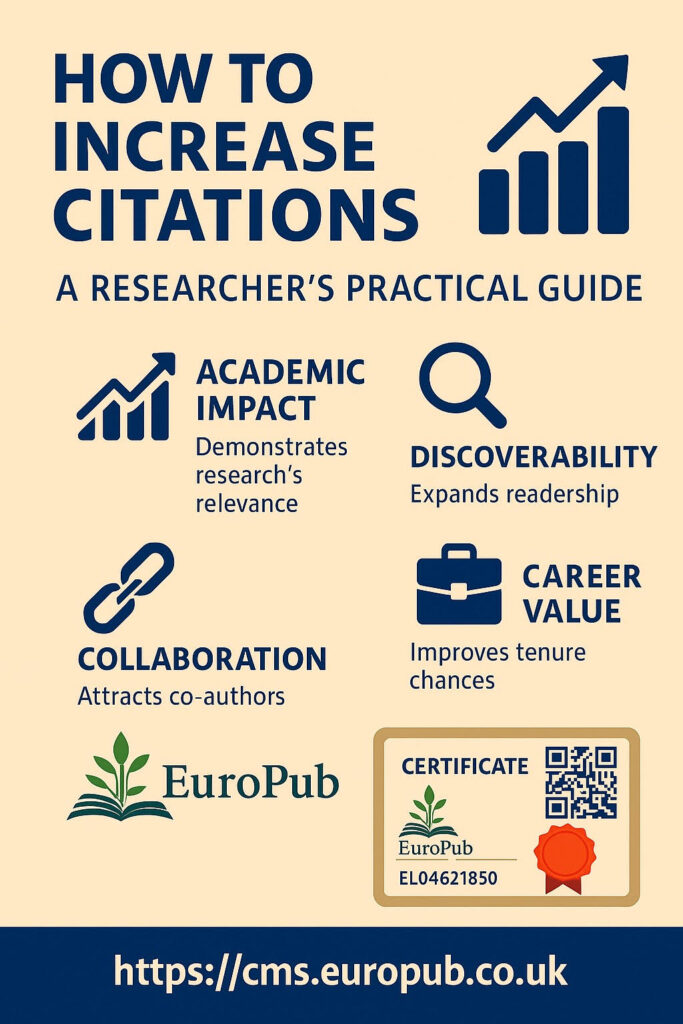
Increasing citations is one of the most effective ways to strengthen your academic reputation, improve your h-index, i10-index, and institutional ranking visibility.
Citations reflect how much your work influences global scientific progress.
 Why Increasing Citations Matters
Why Increasing Citations Matters
| Benefit | Explanation |
|---|---|
 Academic Impact Academic Impact | Demonstrates your research’s relevance and importance |
 Career Growth Career Growth | Improves your CV, promotions, and grant applications |
 Global Reach Global Reach | Expands readership across countries and disciplines |
 Collaboration Collaboration | Attracts co-authorship and partnership opportunities |
 Knowledge Dissemination Knowledge Dissemination | Ensures your findings influence future studies |
 Practical Ways to Increase Citations
Practical Ways to Increase Citations
 Publish in Indexed Journals
Publish in Indexed Journals
Choose journals indexed in Scopus, Web of Science, DOAJ, or PubMed.
These platforms ensure high discoverability.
 Tools:
Tools:
Elsevier Journal Finder | Springer Journal Suggester
 Optimize Your Title & Keywords
Optimize Your Title & Keywords
Use clear, keyword-rich titles and abstracts.
Include key terms early and avoid vague or overly broad titles.
Example:
“Study of Animal Feeding”
“Nutritional Strategies to Improve Feed Efficiency in Ruminants”
 Improve Abstract Clarity
Improve Abstract Clarity
- Use simple, searchable academic language.
- Highlight novelty and contribution.
- Include measurable results.
 Share Research Widely
Share Research Widely
Upload preprints and postprints on:
Open Access visibility = higher citations.
 Use Researcher Profiles
Use Researcher Profiles
Update all your academic profiles:
Include your DOI, EuroCode, and certificate links for validation.
 Collaborate Across Borders
Collaborate Across Borders
International and interdisciplinary papers attract broader audiences.
Collaboration increases citation probability by up to 70%.
 Present in Conferences
Present in Conferences
Mention your paper DOI or QR on slides and posters.
Engage with attendees and follow up with interested researchers.
 Cite Responsibly
Cite Responsibly
Cite your own related work (within reason) to build continuity.
Avoid excessive self-citations or citation exchanges.
 Engage on Social Media
Engage on Social Media
Share your papers with academic hashtags:
#ResearchImpact · #OpenAccess · #EuropubIndex · #Citations
Include a short visual summary or infographic when posting.
1 Track and Adjust
Track and Adjust
Monitor which papers gain attention.
Use:
- Google Scholar Alerts
- Scopus Citation Tracker
- Europub Research Dashboard
 Advanced Citation Strategies
Advanced Citation Strategies
| Strategy | Why It Works |
|---|---|
 Write Review Articles Write Review Articles | Summarize your field — widely cited by peers |
 Create Data Papers Create Data Papers | Datasets often reused and cited |
 Link Related Studies Link Related Studies | Boosts networked visibility |
 Open Access Publishing Open Access Publishing | Free access drives more readership |
 Teaching Citations Teaching Citations | Include your papers in course materials or theses |
 Avoid These Mistakes
Avoid These Mistakes
- Publishing in non-indexed or predatory journals
- Ignoring keywords or abstract clarity
- Using inconsistent author names
- Forgetting to update ORCID / Scopus profiles
- Overusing self-citations
 Research Ethics
Research Ethics
- Cite others’ work fairly and honestly.
- Do not join “citation exchange” groups.
- Always check copyright before uploading PDFs.
- Follow COPE Ethical Citation Standards.
 Useful Resources
Useful Resources
| Resource | Link |
|---|---|
| Google Scholar Citations | https://scholar.google.com |
| Scopus Author ID | https://www.scopus.com |
| Publons | https://publons.com |
| ORCID Registration | https://orcid.org |
| Europub Certificate System | https://cms.europub.co.uk |
| Europub Database | https://europub.co.uk |
| Europub Scientific News | https://news.europub.co.uk |
 Europub Certification Reminder
Europub Certification Reminder
Validate your research achievements with official Europub certificates:
- Citation Growth Certificate
- h-index Verification
- Research Visibility Certificate
- Google Scholar & Scopus Integration Badge
 Apply here → https://cms.europub.co.uk
Apply here → https://cms.europub.co.uk
